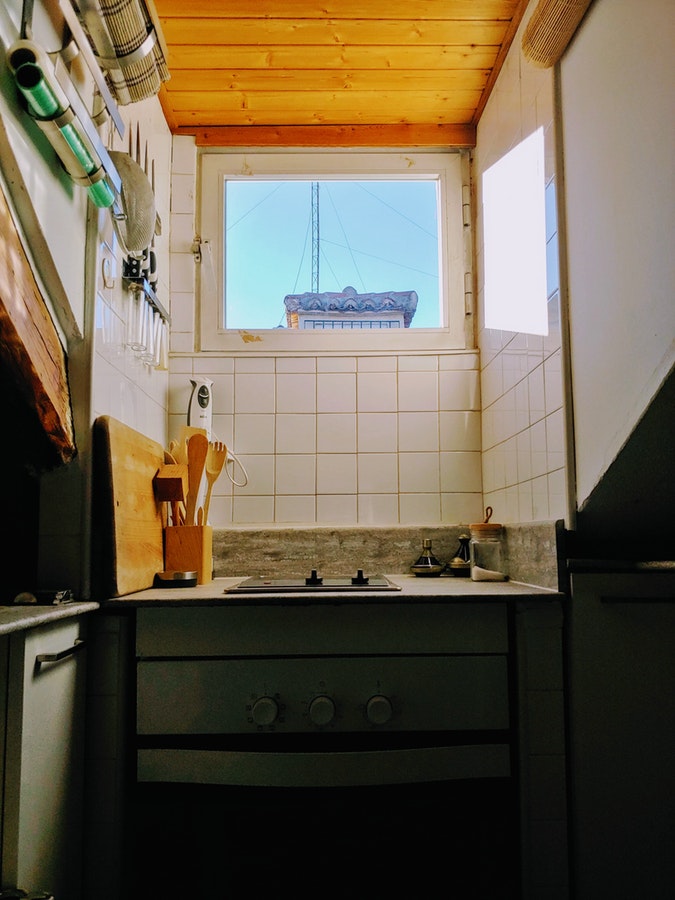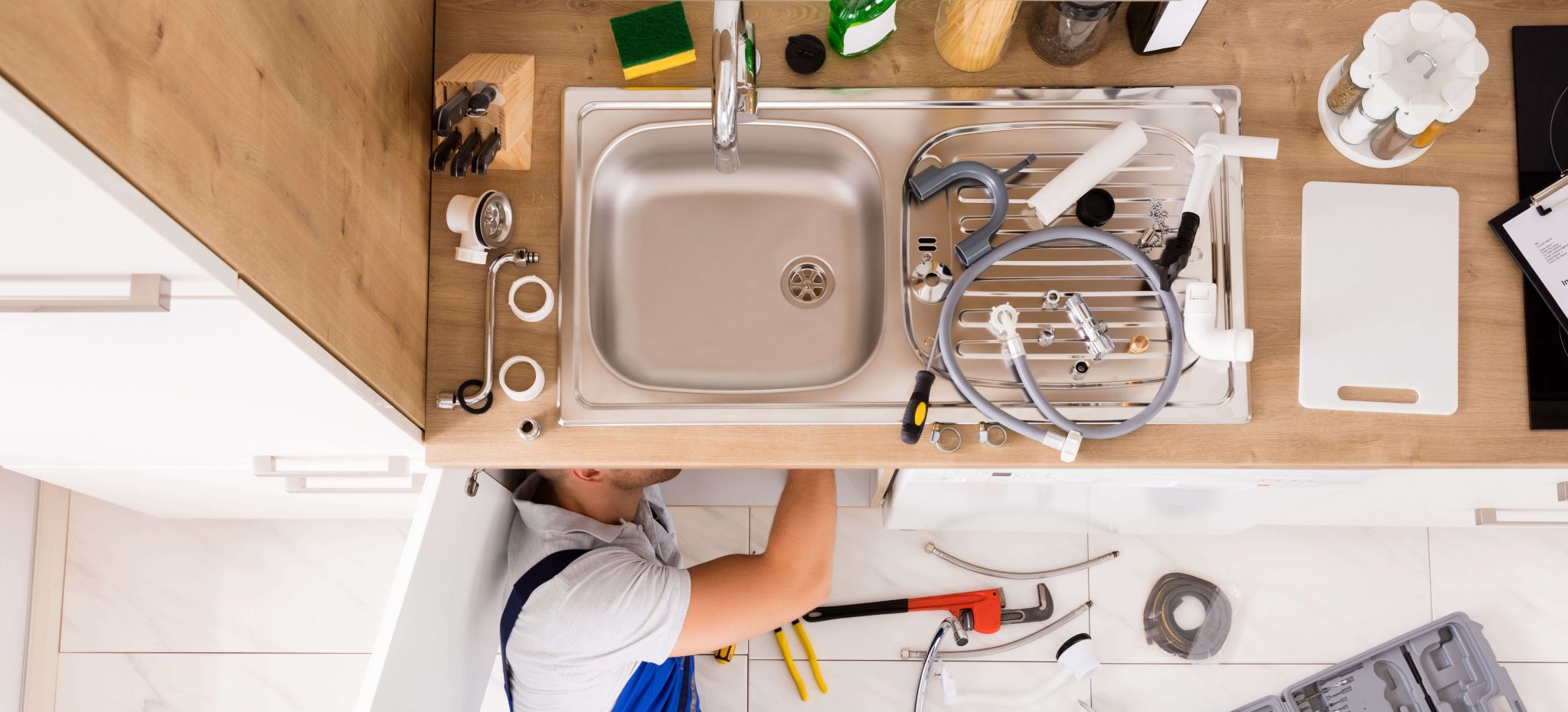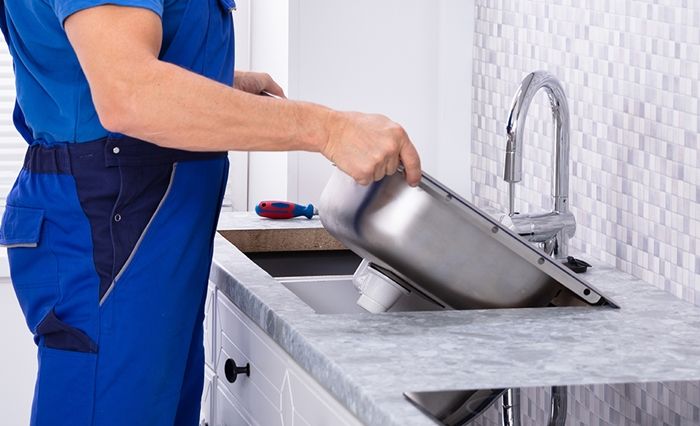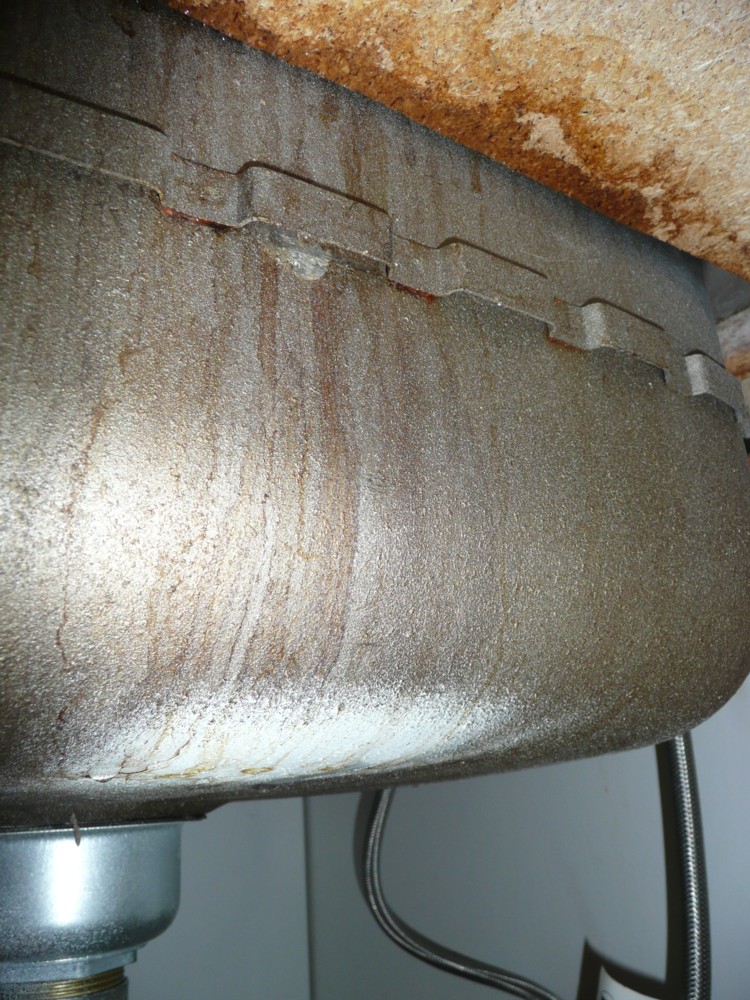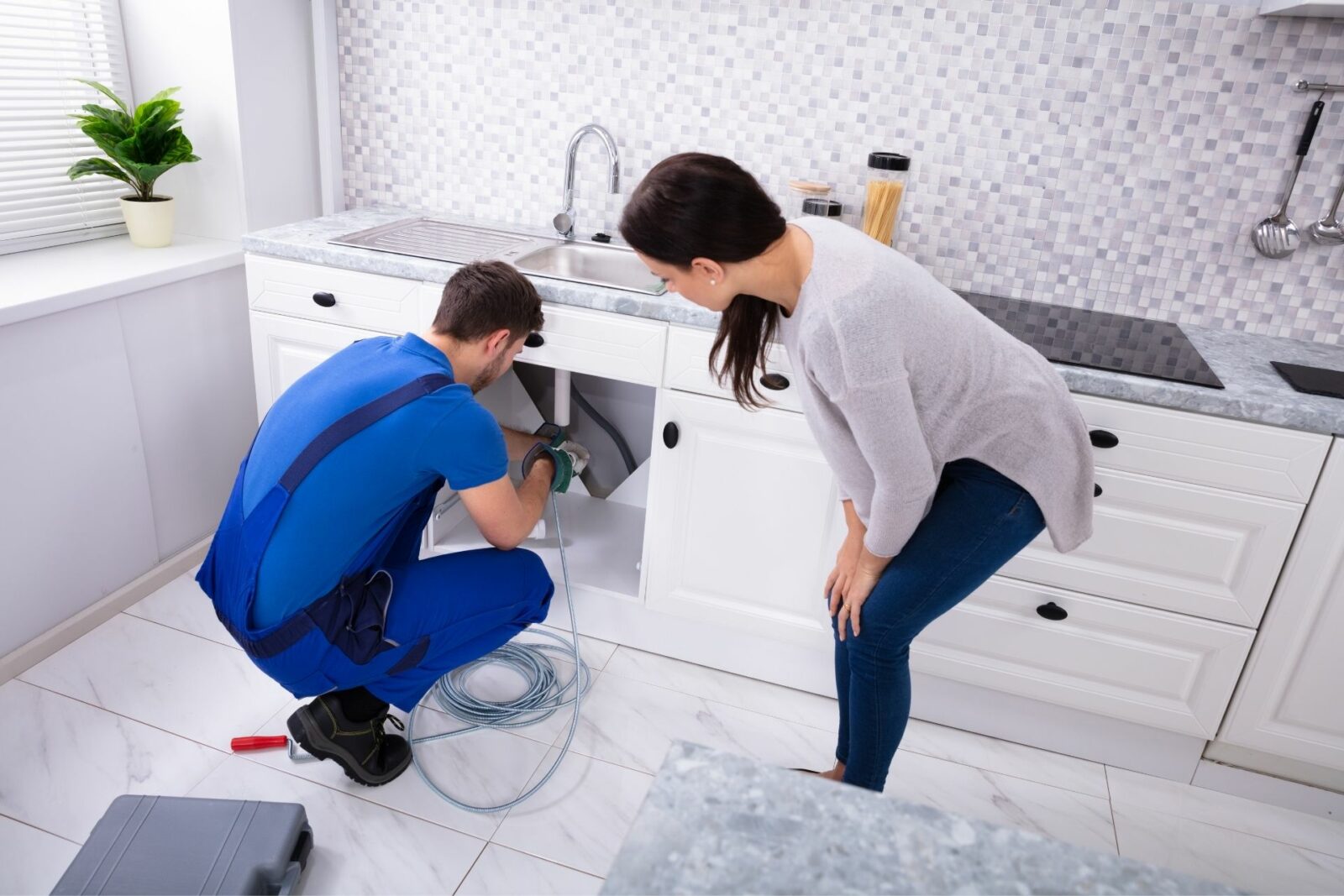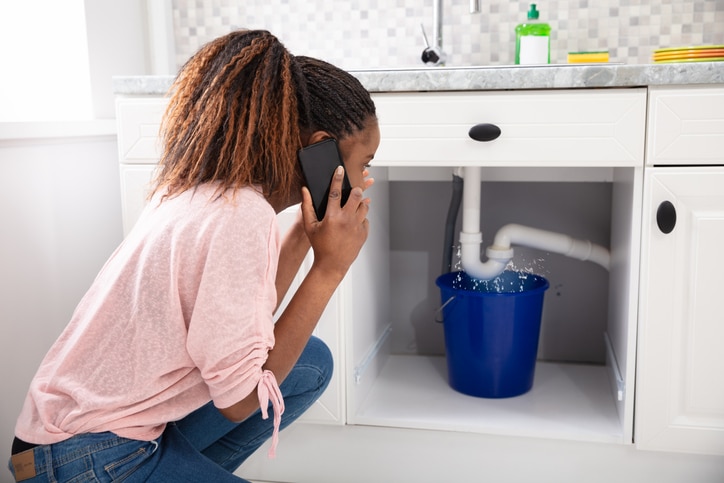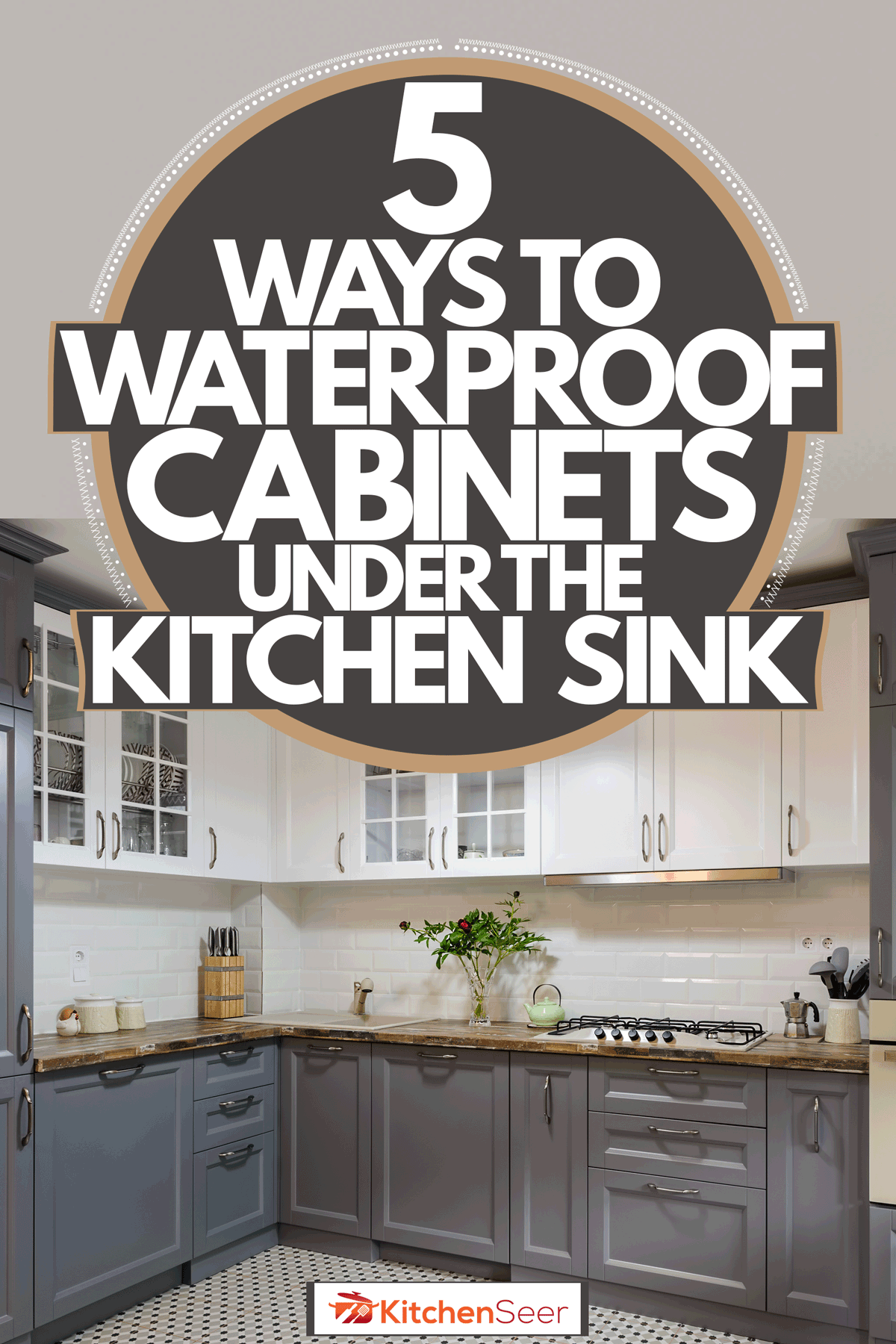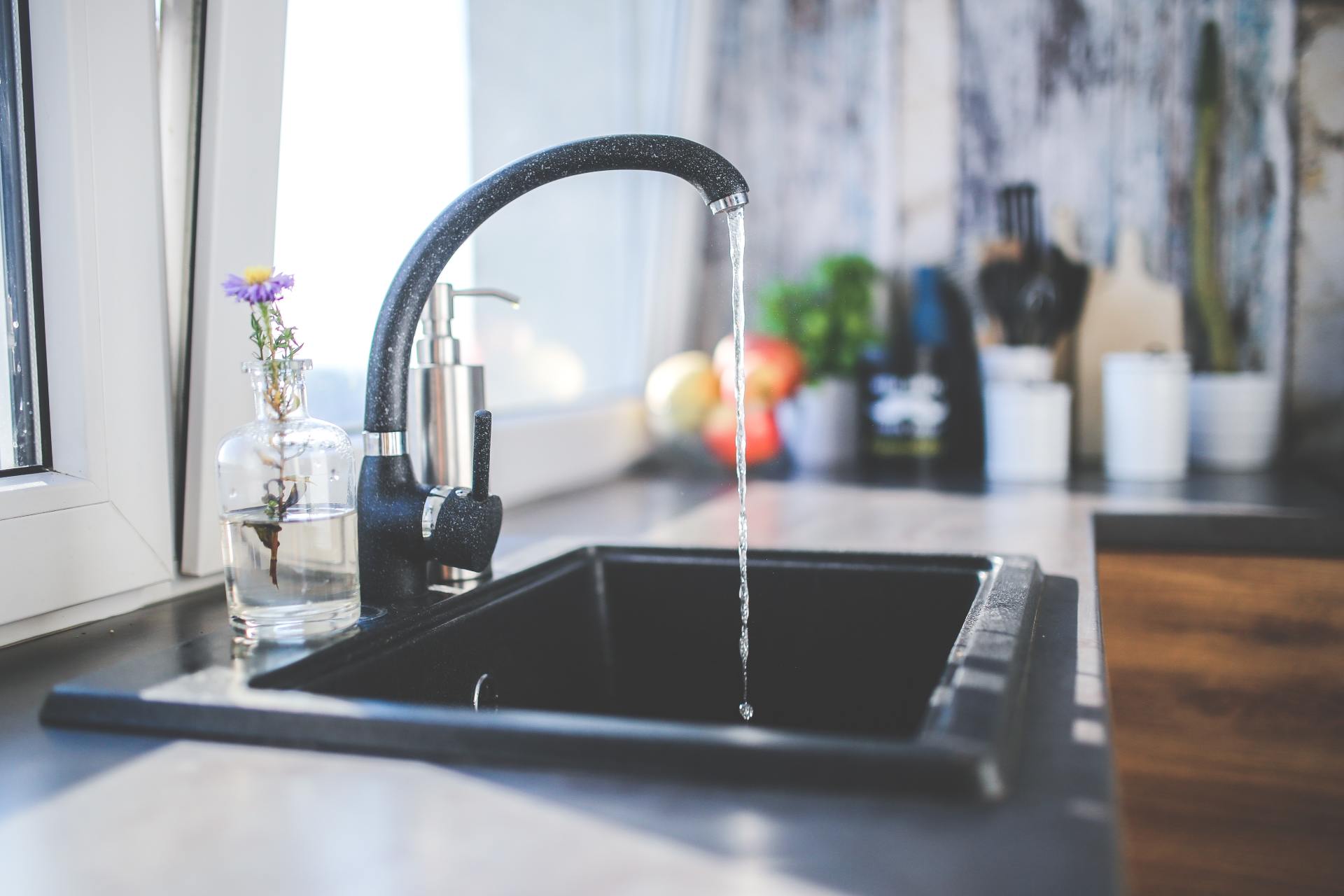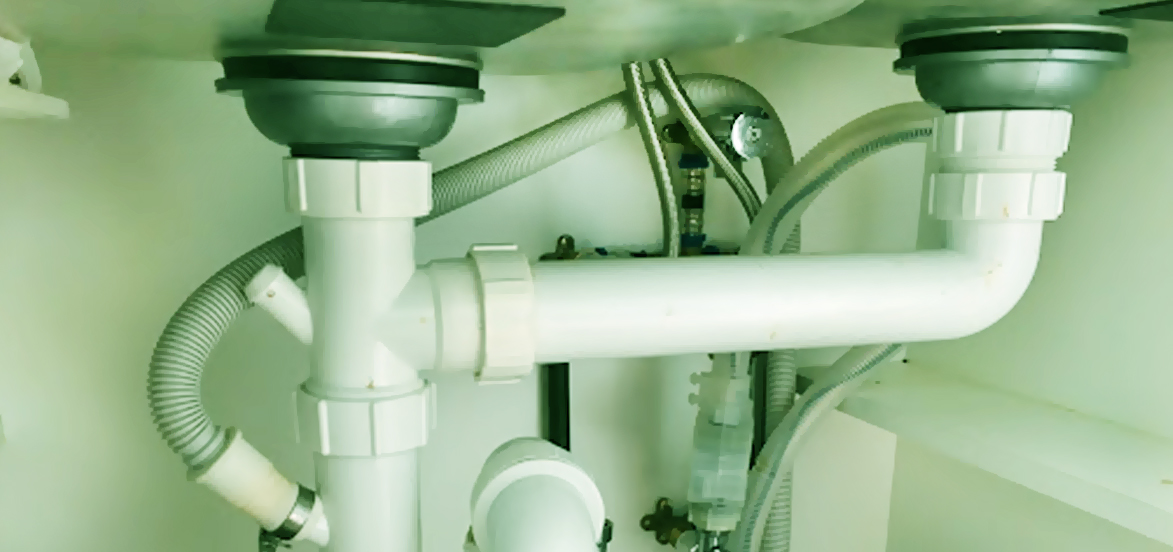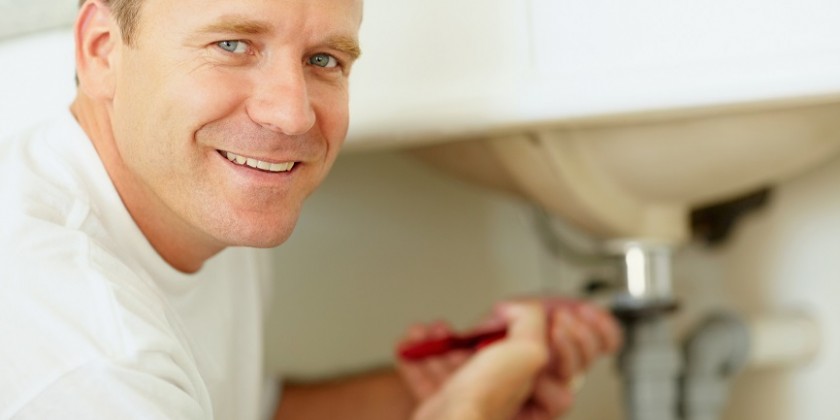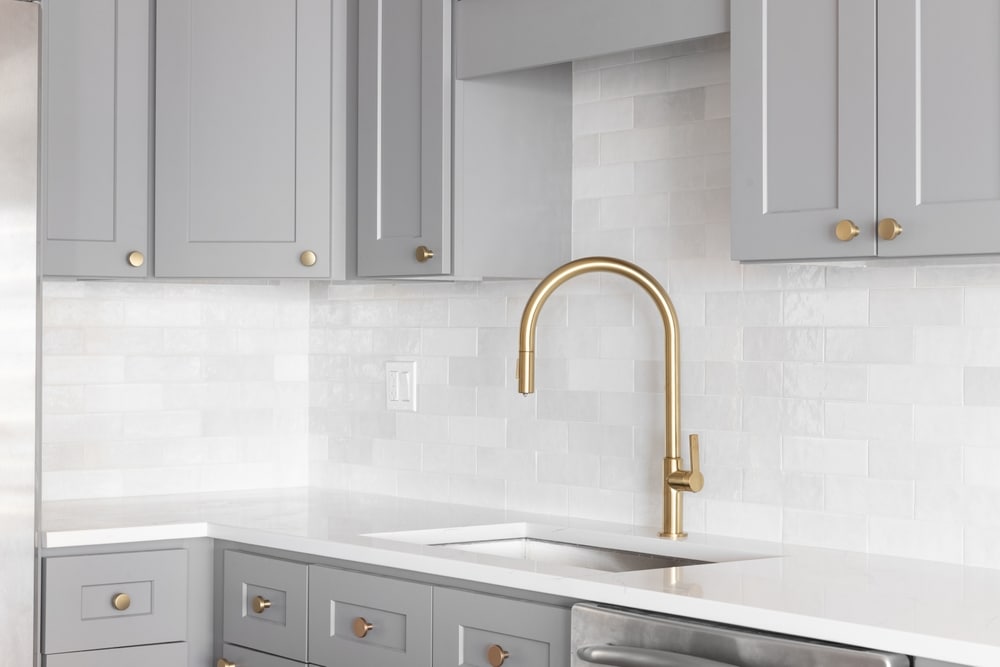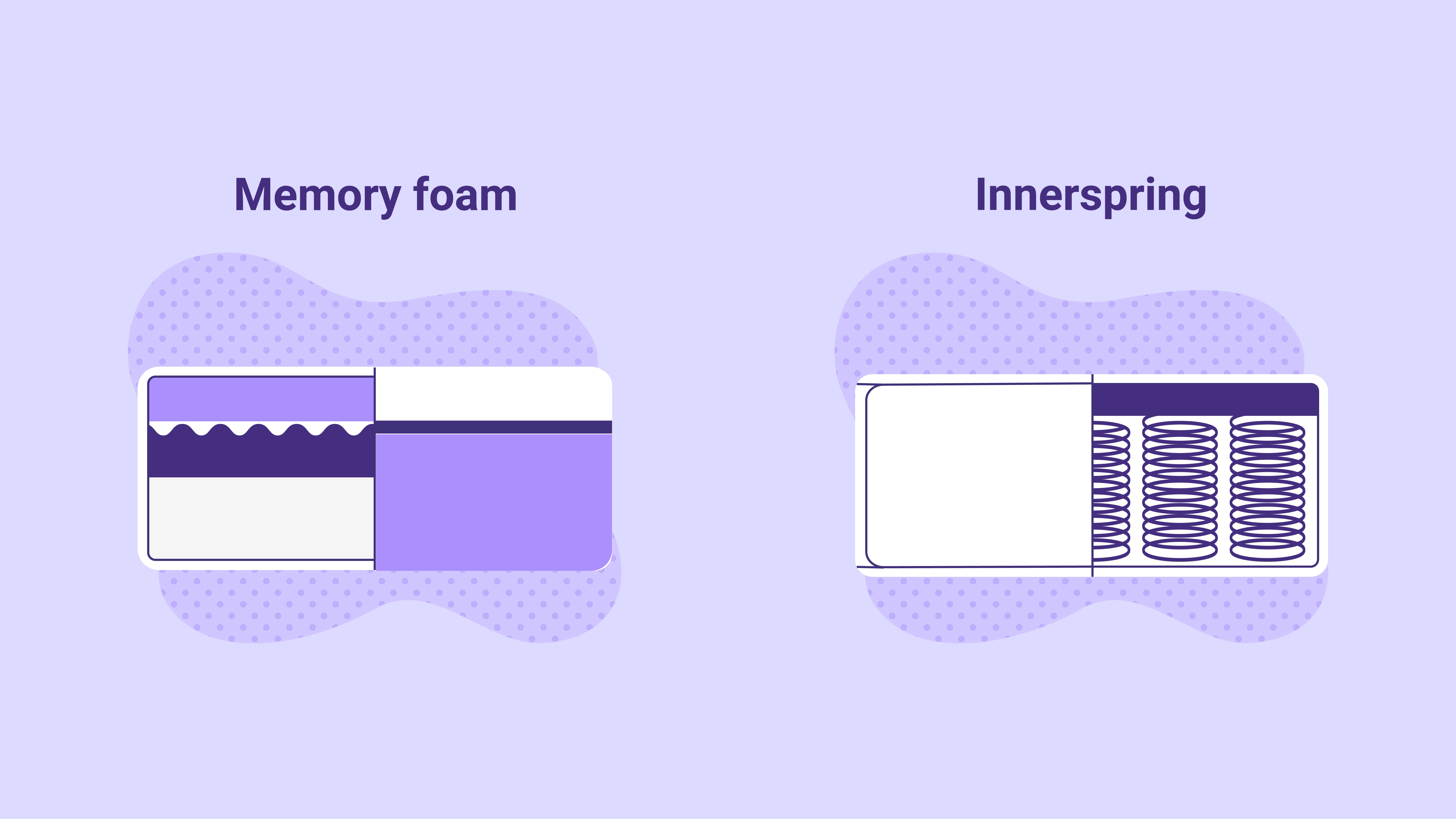How to Fix a Leaky Kitchen Sink
If you've noticed water pooling on your kitchen floor, chances are you have a leaky kitchen sink. Not only can this cause damage to your floors and cabinets, but it can also lead to higher water bills and potential mold growth. Fortunately, fixing a leaky kitchen sink is a relatively simple task that can save you time and money in the long run.
How to Repair a Leaking Kitchen Sink
The first step in repairing a leaking kitchen sink is to determine the source of the leak. This can usually be done by inspecting the pipes and connections under the sink. Look for any visible cracks, loose connections, or signs of corrosion. If you're unable to locate the source of the leak, it may be best to call a professional plumber for assistance.
Common Causes of Kitchen Sink Leaks
There are several reasons why your kitchen sink may be leaking. One of the most common causes is a worn out or damaged seal around the sink's edges. This can easily happen over time with frequent use and can be easily replaced with a new seal. Another common cause is loose or damaged pipes, which can be tightened or replaced to stop the leak.
DIY Solutions for Kitchen Sink Water Leaks
If the leak is minor and you feel confident in your plumbing skills, there are a few DIY solutions you can try. One option is to use plumber's tape or silicone sealant to repair small cracks or gaps in the pipes. Another option is to replace the faulty parts, such as the seal or pipe, with new ones. Just be sure to turn off the water supply before attempting any repairs.
Signs of a Kitchen Sink Leak
In addition to visible water on the floor, there are a few other signs that may indicate a kitchen sink leak. These include a musty or moldy smell, water stains on the cabinets or walls near the sink, and a decrease in water pressure. If you notice any of these signs, it's important to address the issue as soon as possible to prevent further damage.
Preventing Kitchen Sink Water Leaks
The best way to deal with kitchen sink water leaks is to prevent them from happening in the first place. Regularly inspecting the pipes and connections under the sink for any signs of wear and tear can help catch and fix potential issues early on. It's also important to avoid putting excessive weight on the sink, which can cause damage to the seals and pipes.
Professional Plumbing Services for Kitchen Sink Leaks
If you're not comfortable with DIY repairs or are unable to locate the source of the leak, it's best to call a professional plumber for assistance. They have the knowledge and tools to properly diagnose and fix the issue, saving you time and potential further damage to your kitchen.
Replacing a Kitchen Sink to Stop Leaks
In some cases, if the kitchen sink is old or damaged beyond repair, it may be necessary to replace it entirely. While this may be a more costly solution, it can save you from ongoing leaks and repairs in the future. Be sure to choose a high-quality sink and have it installed by a professional for best results.
How to Detect and Fix a Kitchen Sink Leak
If you suspect a kitchen sink leak but are unable to find the source, it may be best to call a professional plumber for an inspection. They have the tools and expertise to locate and fix the leak quickly and efficiently. It's always better to address the issue sooner rather than later to prevent further damage and costly repairs.
Dealing with Water Damage from a Kitchen Sink Leak
If you've experienced significant water damage from a kitchen sink leak, it's important to address it as soon as possible. This may involve hiring a professional water damage restoration company to properly dry out and repair any affected areas. It's also important to fix the leak to prevent further damage from occurring.
In conclusion, a leaky kitchen sink may seem like a minor inconvenience, but it can quickly lead to bigger problems if not addressed promptly. By understanding the common causes of kitchen sink leaks and knowing how to detect and fix them, you can save yourself time, money, and potential water damage in the long run.
Preventing Kitchen Sink Water Leaks on Your Floor

Understanding the Problem
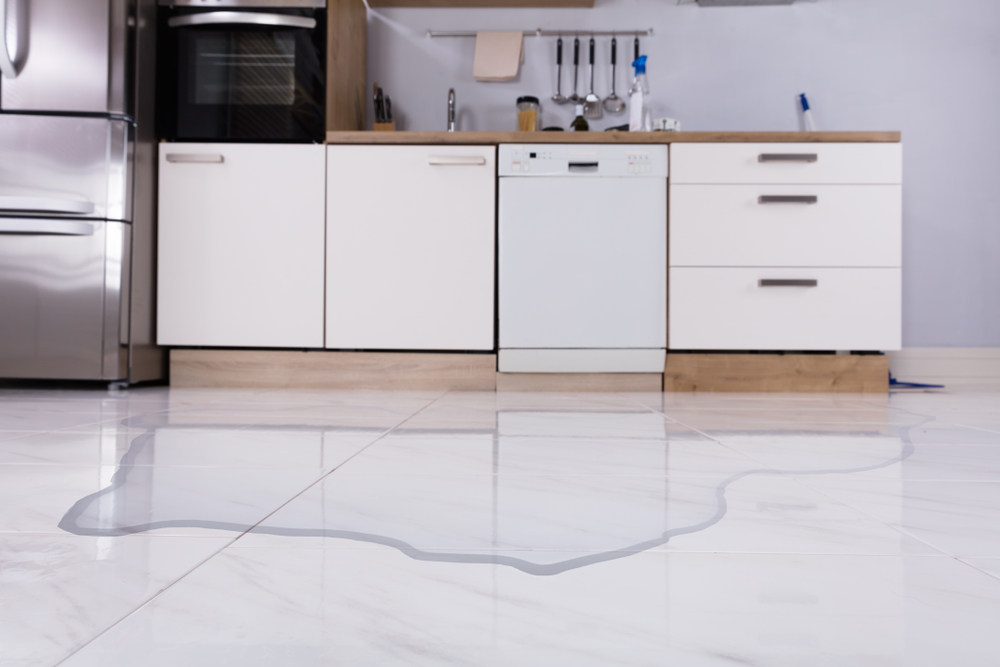 Kitchen sink water leaks on the floor
can be a common and frustrating issue for homeowners. Not only can it cause damage to your floor and surrounding cabinets, but it can also lead to potential mold growth and expensive repairs. It's important to understand the causes of these leaks and how to prevent them from occurring in the first place.
Kitchen sink water leaks on the floor
can be a common and frustrating issue for homeowners. Not only can it cause damage to your floor and surrounding cabinets, but it can also lead to potential mold growth and expensive repairs. It's important to understand the causes of these leaks and how to prevent them from occurring in the first place.
Identifying the Source
:max_bytes(150000):strip_icc()/water-overflowing-in-kitchen-sink-200553937-001-5797e6335f9b58461f5a6736.jpg) The first step in preventing kitchen sink water leaks is to identify the source of the problem. In most cases, the leak is coming from the pipes under the sink. Over time, these pipes can become worn or damaged, causing them to leak. It's important to regularly check the pipes for any signs of corrosion or cracks. If you notice any, it's important to replace them immediately to prevent further damage.
Another common culprit of kitchen sink water leaks is the sink's sealant. Over time, the sealant can deteriorate or become loose, causing water to seep through and leak onto the floor. It's important to regularly check and replace the sealant to ensure a tight seal and prevent any leaks.
The first step in preventing kitchen sink water leaks is to identify the source of the problem. In most cases, the leak is coming from the pipes under the sink. Over time, these pipes can become worn or damaged, causing them to leak. It's important to regularly check the pipes for any signs of corrosion or cracks. If you notice any, it's important to replace them immediately to prevent further damage.
Another common culprit of kitchen sink water leaks is the sink's sealant. Over time, the sealant can deteriorate or become loose, causing water to seep through and leak onto the floor. It's important to regularly check and replace the sealant to ensure a tight seal and prevent any leaks.
Preventative Measures
 One of the best ways to prevent kitchen sink water leaks is to be proactive and take preventative measures. This includes regularly checking the pipes and sealant, as mentioned above. It's also a good idea to avoid putting heavy objects, such as pots and pans, on the sink as this can cause damage to the pipes and sealant.
Additionally, investing in a quality sink mat or tray can help catch any small leaks and prevent them from damaging your floor. These mats and trays are designed to fit under the sink and can quickly and easily be replaced if they become damaged or worn.
One of the best ways to prevent kitchen sink water leaks is to be proactive and take preventative measures. This includes regularly checking the pipes and sealant, as mentioned above. It's also a good idea to avoid putting heavy objects, such as pots and pans, on the sink as this can cause damage to the pipes and sealant.
Additionally, investing in a quality sink mat or tray can help catch any small leaks and prevent them from damaging your floor. These mats and trays are designed to fit under the sink and can quickly and easily be replaced if they become damaged or worn.
Professional Help
 If you are experiencing persistent kitchen sink water leaks, it may be time to call in a professional. A plumber can assess the situation and determine the best course of action to prevent future leaks. They can also ensure that all pipes and sealants are properly installed and functioning correctly.
In conclusion,
kitchen sink water leaks on the floor
can be a frustrating and potentially costly issue for homeowners. By understanding the problem, regularly checking for damage, and taking preventative measures, you can avoid these leaks and keep your kitchen in top condition. Remember to seek professional help if needed and don't hesitate to replace any worn or damaged parts to prevent future leaks.
If you are experiencing persistent kitchen sink water leaks, it may be time to call in a professional. A plumber can assess the situation and determine the best course of action to prevent future leaks. They can also ensure that all pipes and sealants are properly installed and functioning correctly.
In conclusion,
kitchen sink water leaks on the floor
can be a frustrating and potentially costly issue for homeowners. By understanding the problem, regularly checking for damage, and taking preventative measures, you can avoid these leaks and keep your kitchen in top condition. Remember to seek professional help if needed and don't hesitate to replace any worn or damaged parts to prevent future leaks.


















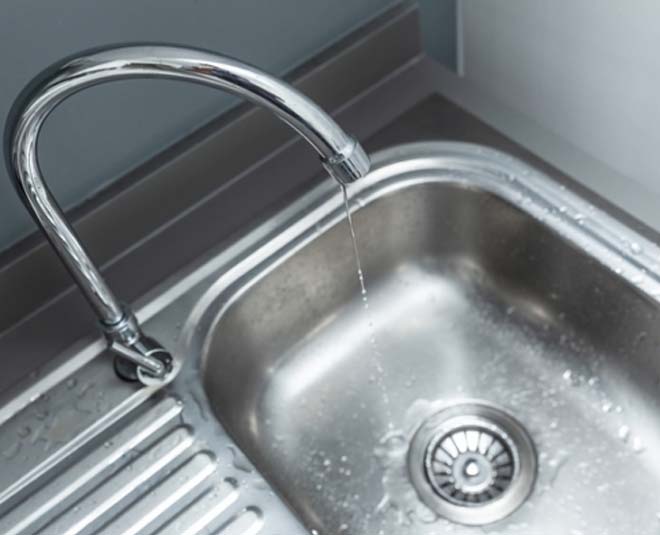

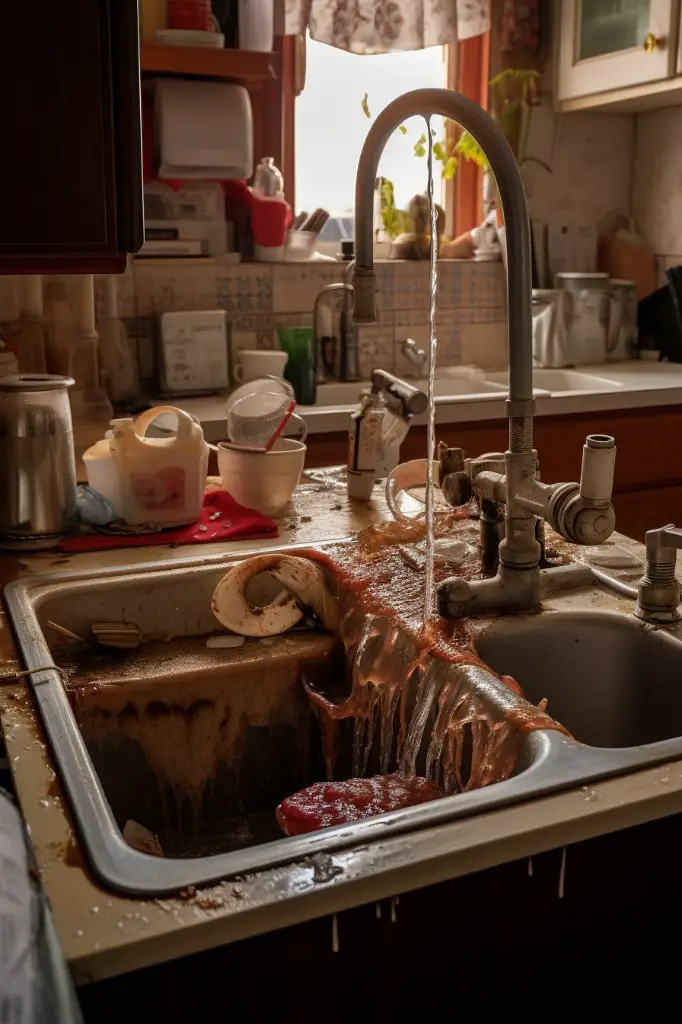





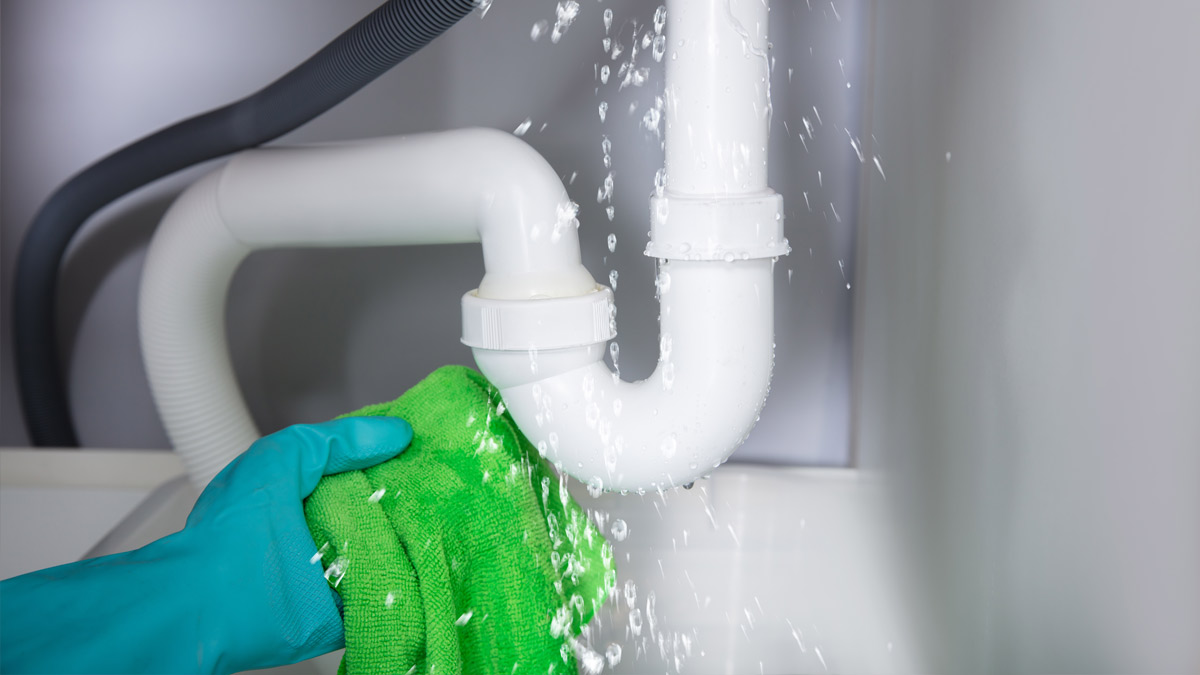
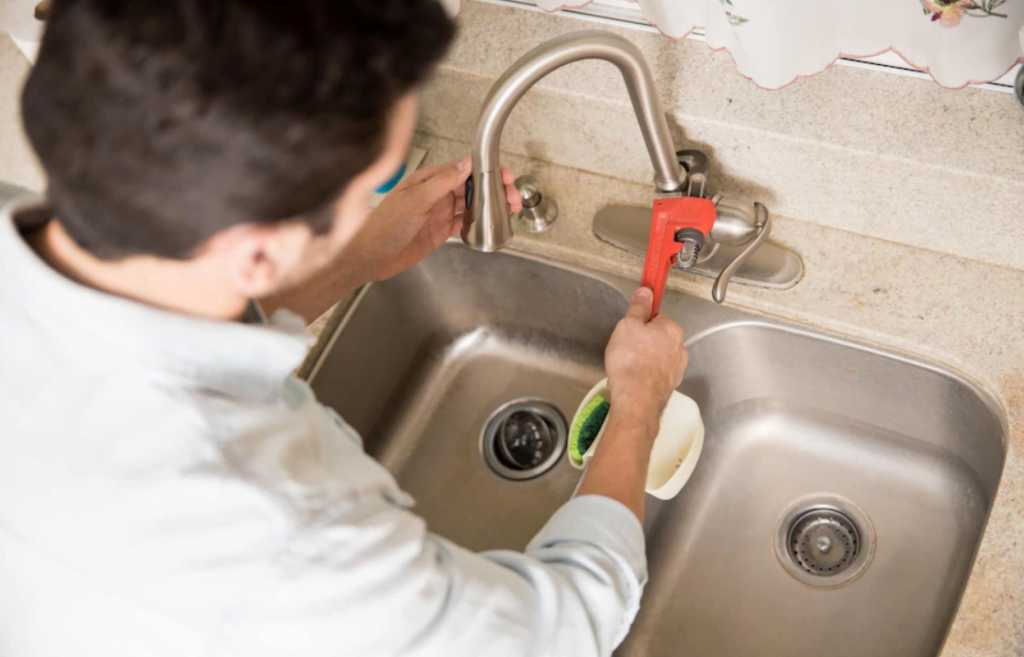
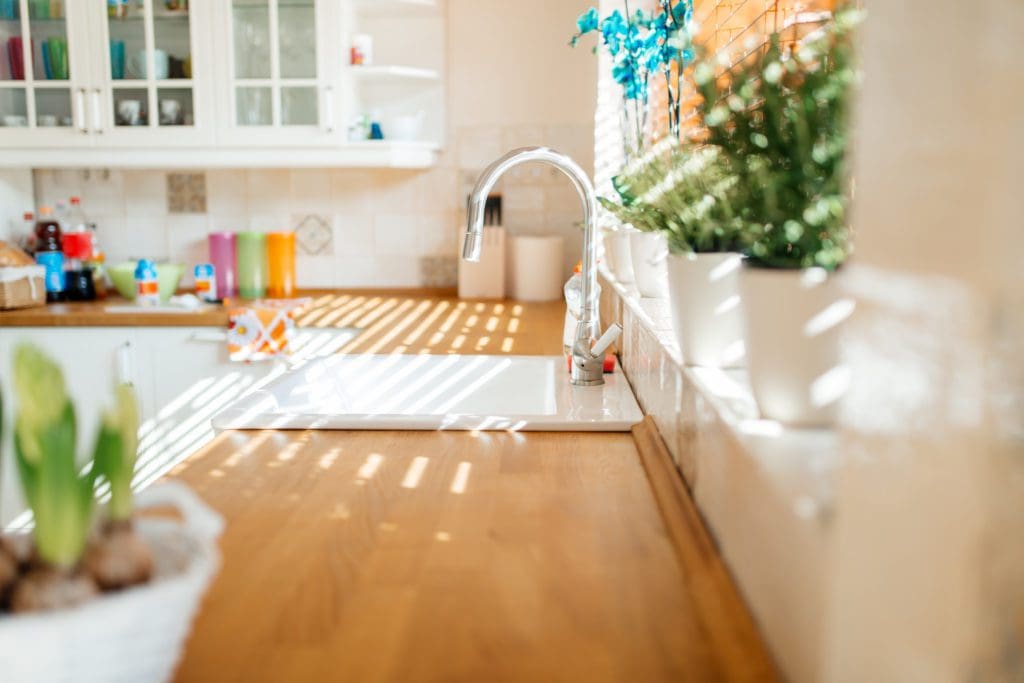










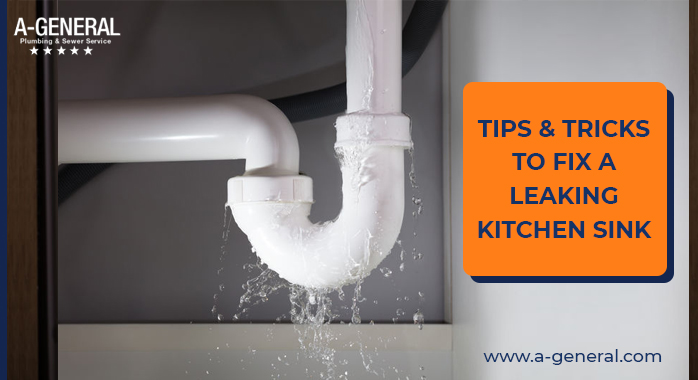


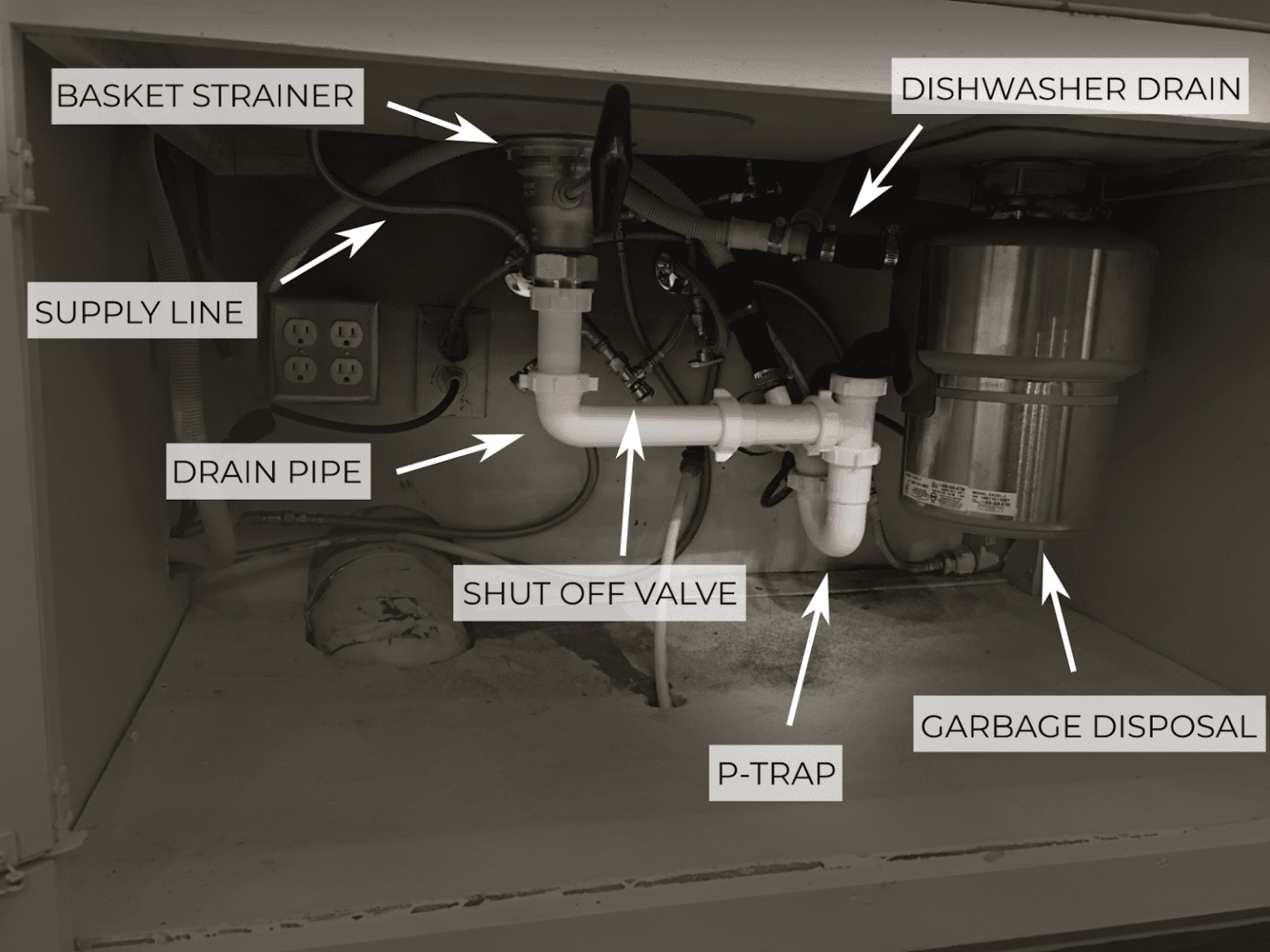


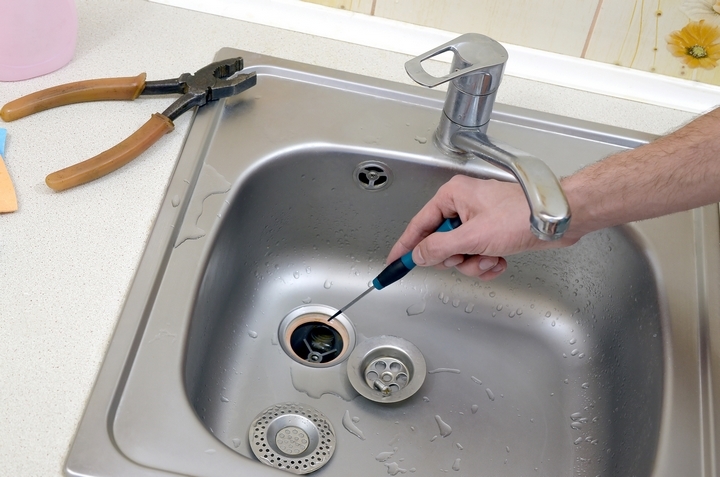

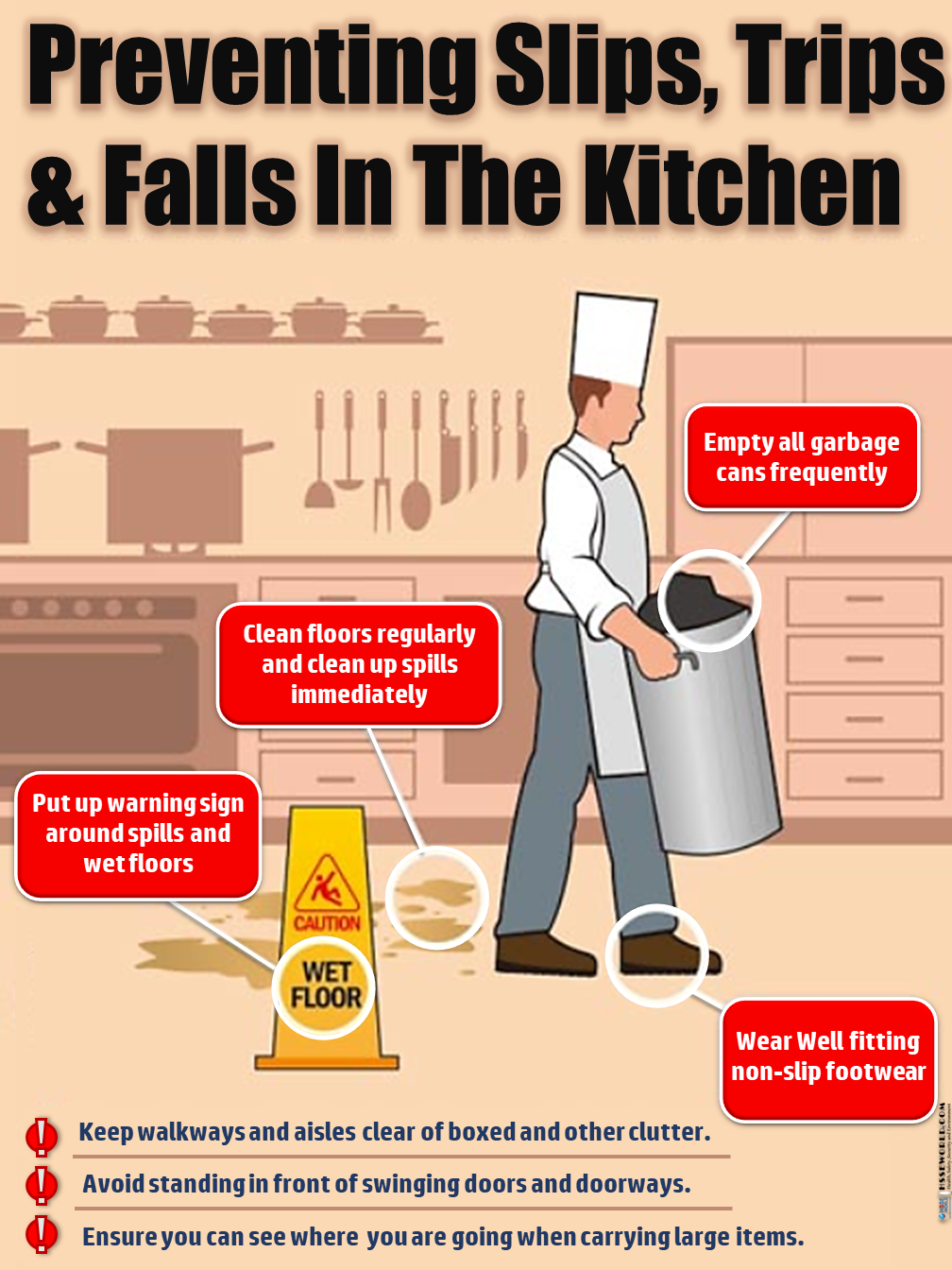

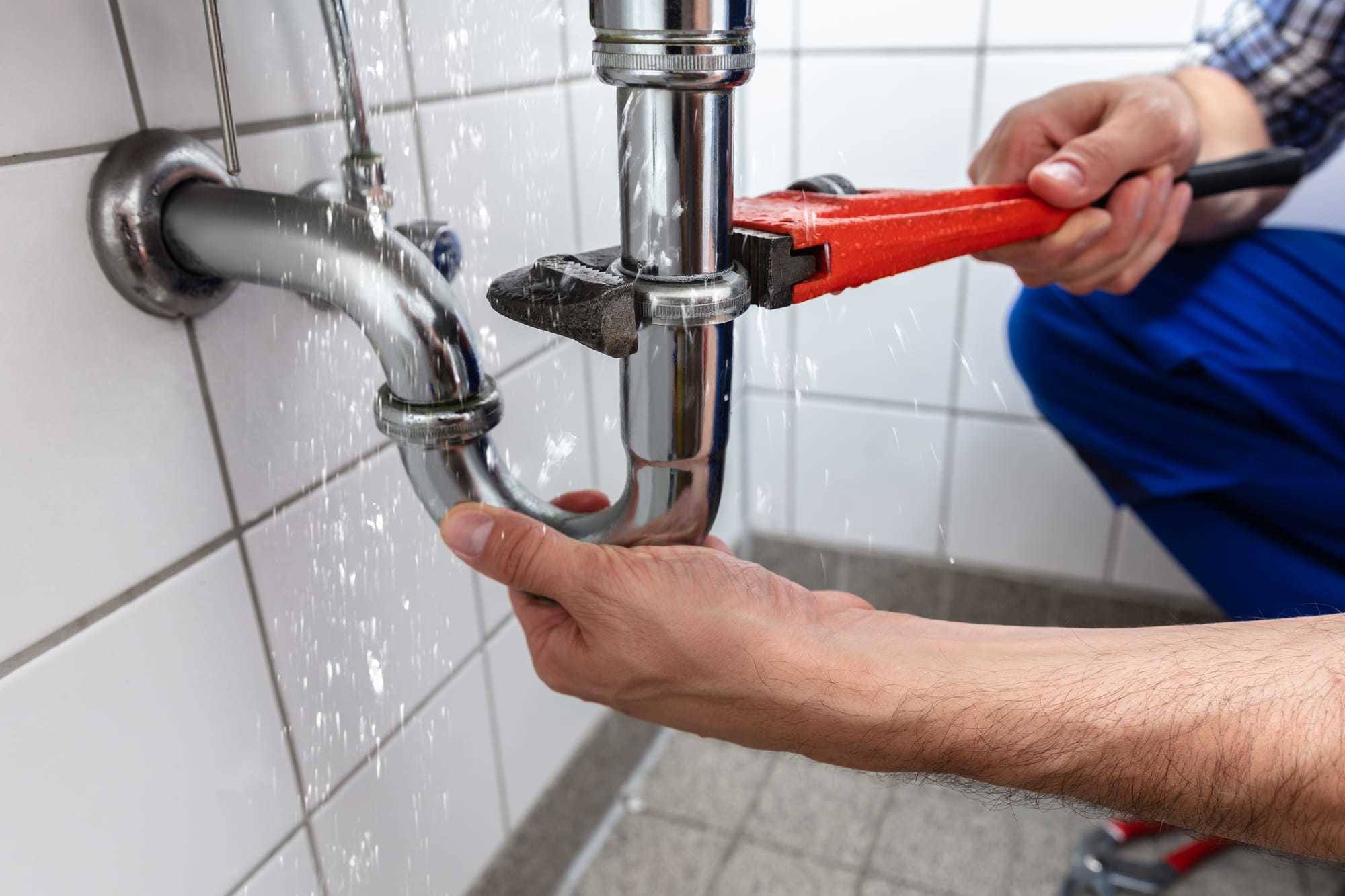

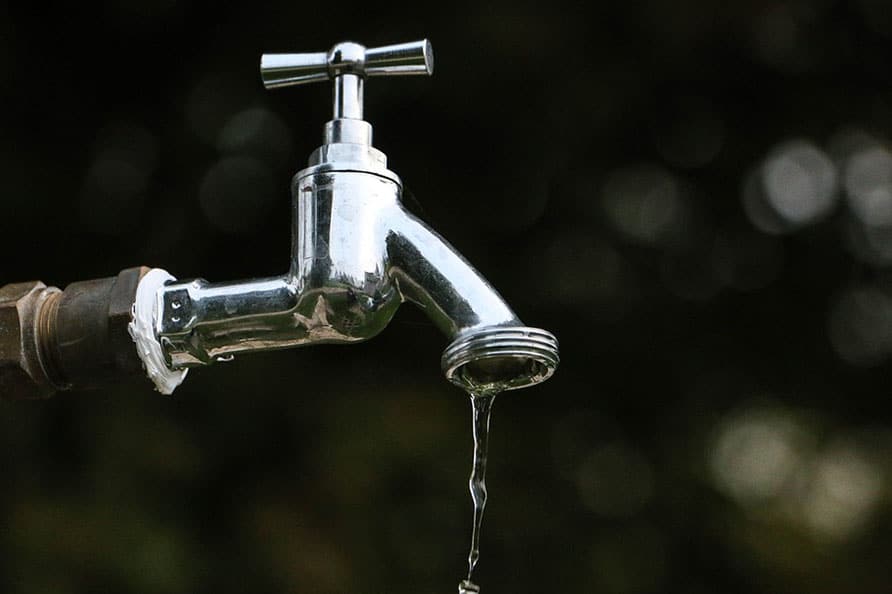

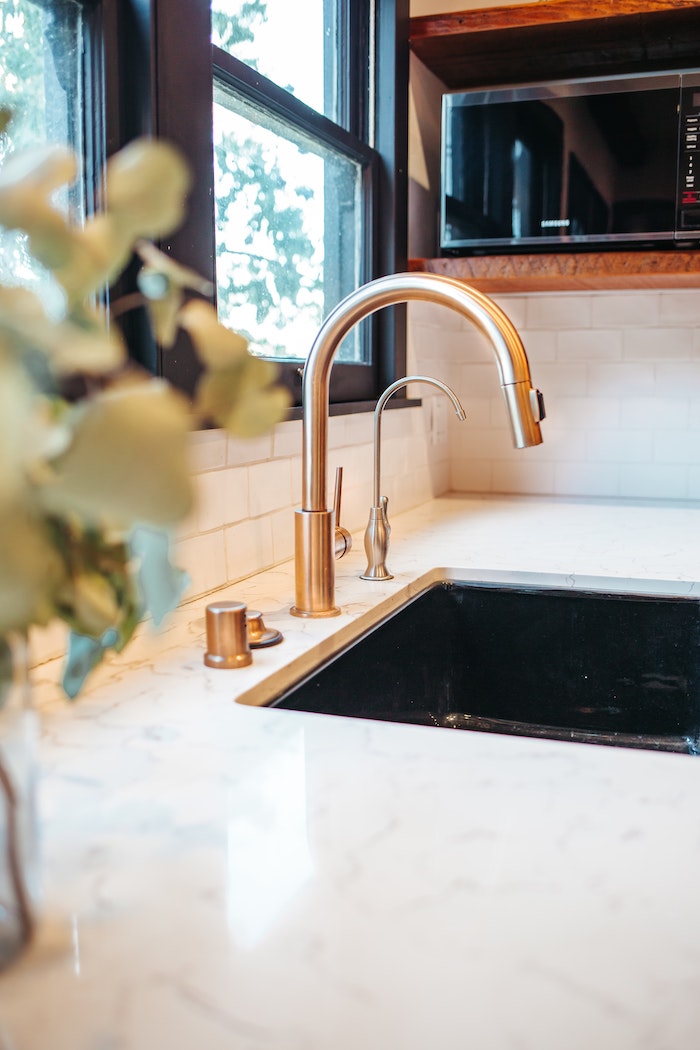


/how-to-install-a-sink-drain-2718789-hero-24e898006ed94c9593a2a268b57989a3.jpg)






